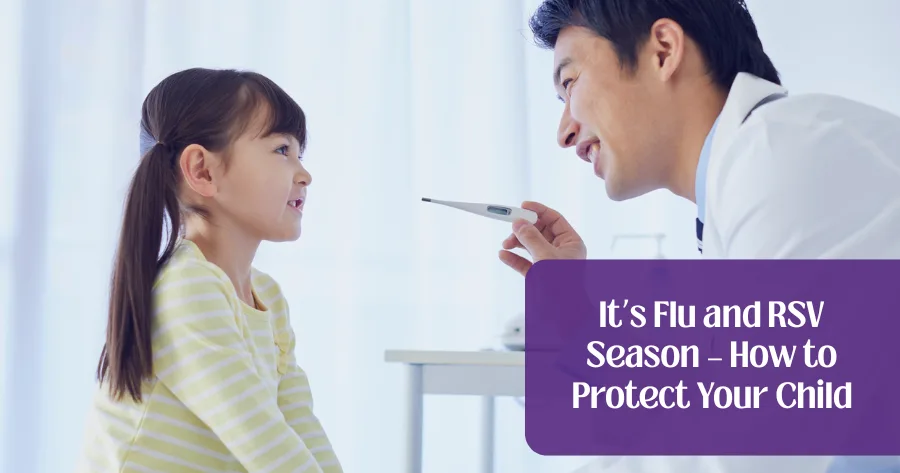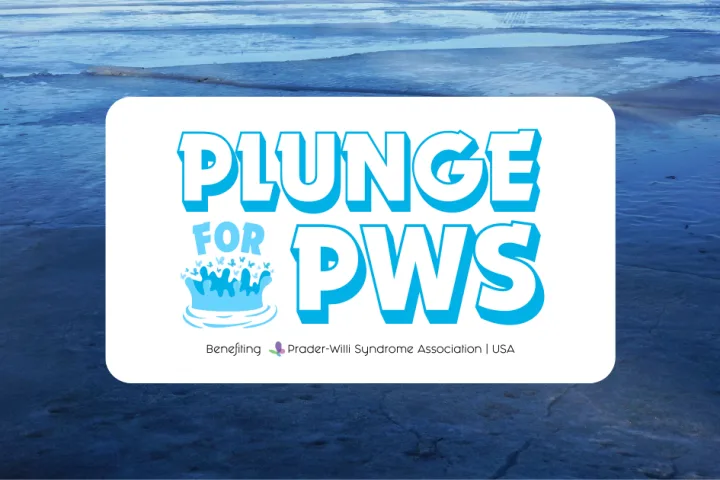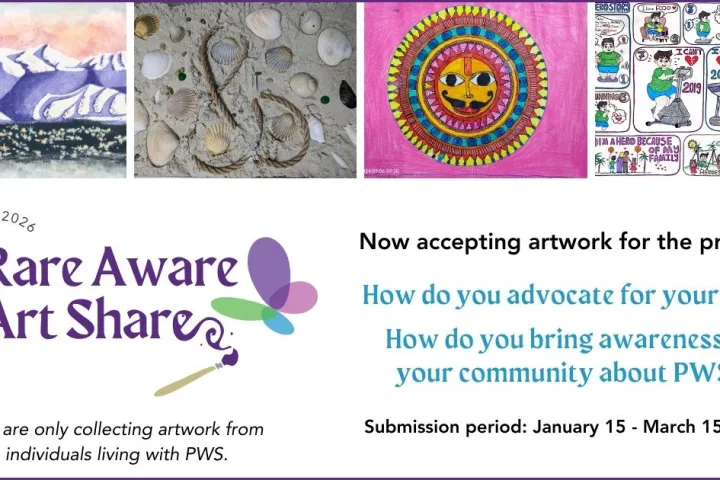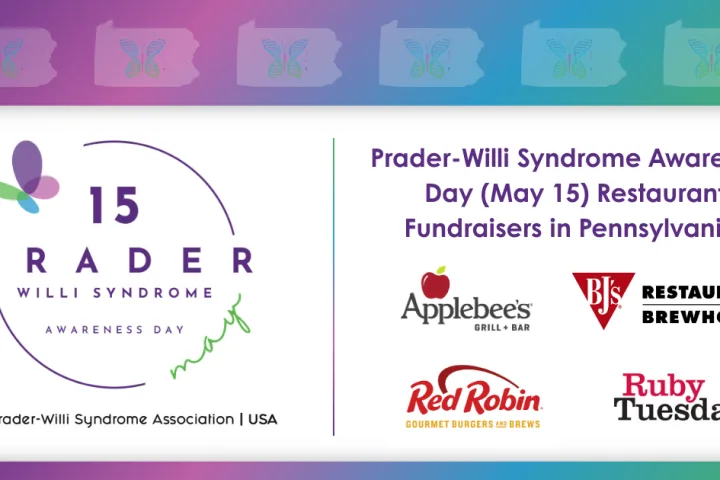Contributed by PWSA | USA's Family Support Team
The Centers for Disease Control and Prevention (CDC) has shown an increase in Respiratory Syncytial Virus (RSV) infections in multiple areas of the US https://www.cdc.gov/rsv/index.html.
RSV infection can cause a variety of respiratory illnesses in infants and young children. It most commonly causes a cold-like illness but can also cause lower respiratory infections like bronchiolitis and pneumonia. Symptoms are usually consistent with an upper respiratory tract infection. RSV symptoms can overlap with other viral respiratory infections and some bacterial infections. Children with PWS may have an increased risk of developing more severe cases.
How is RSV spread?
According to the U.S. Centers for Disease Control and Prevention (CDC), people infected with RSV are usually contagious for three to eight days.
People catch RSV by direct contact with respiratory secretions (saliva and mucus) or things that have been in contact with it. The virus can live on surfaces for many hours and a half-hour or more on the hands. Symptoms can appear two to eight days after contact with RSV. According to the CDC, people infected with RSV are usually contagious for three to eight days.
Frequent handwashing is one of the most important ways to prevent the spread of RSV.
When should I call the doctor?
- Refusing to drink
- Vomiting, not being able to keep liquids down
- Pulling at the ears
- Hard time breathing
- Wheezing or gasping for air
- Breathing fast (more than 60 times per minute)
- Hard time staying awake
- Sucking in on the spaces between the ribs with each breath
- When you notice a bluish or grayish tinge around or inside the lips - call 911
The most used types of RSV clinical laboratory tests are:
- Real-time reverse transcriptase-polymerase chain reaction (RT-PCR), which is more sensitive than culture and antigen testing
- Antigen testing, which is highly sensitive in children but not sensitive in adults
There is no cure for RSV, so if your loved one is infected, treatment is supportive (aimed at treating the symptoms present).
Currently, two medications are approved for babies and children at high risk for RSV to protect them against the serious complications of the illness. This may include individuals with PWS. These are usually given monthly during the RSV "season" from late fall through spring. Please consult your primary physician to see if it is recommended for your loved one. These medications are not vaccines, and they do not prevent the virus. However, they do lessen the severity of the illness and may help shorten the hospital stay.
Centers for Disease Control and Prevention. (2020, December 18). For healthcare professionals: RSV (respiratory syncytial virus). Centers for Disease Control and Prevention. Retrieved October 26, 2022, from https://www.cdc.gov/rsv/clinical/index.html
Share this!





 Perry A. Zirkel has written more than 1,500 publications on various aspects of school law, with an emphasis on legal issues in special education. He writes a regular column for NAESP’s Principal magazine and NASP’s Communiqué newsletter, and he did so previously for Phi Delta Kappan and Teaching Exceptional Children.
Perry A. Zirkel has written more than 1,500 publications on various aspects of school law, with an emphasis on legal issues in special education. He writes a regular column for NAESP’s Principal magazine and NASP’s Communiqué newsletter, and he did so previously for Phi Delta Kappan and Teaching Exceptional Children. Jennifer Bolander has been serving as a Special Education Specialist for PWSA (USA) since October of 2015. She is a graduate of John Carroll University and lives in Ohio with her husband Brad and daughters Kate (17), and Sophia (13) who was born with PWS.
Jennifer Bolander has been serving as a Special Education Specialist for PWSA (USA) since October of 2015. She is a graduate of John Carroll University and lives in Ohio with her husband Brad and daughters Kate (17), and Sophia (13) who was born with PWS. Dr. Amy McTighe is the PWS Program Manager and Inpatient Teacher at the Center for Prader-Willi Syndrome at the Children’s Institute of Pittsburgh. She graduated from Duquesne University receiving her Bachelor’s and Master’s degree in Education with a focus on elementary education, special education, and language arts.
Dr. Amy McTighe is the PWS Program Manager and Inpatient Teacher at the Center for Prader-Willi Syndrome at the Children’s Institute of Pittsburgh. She graduated from Duquesne University receiving her Bachelor’s and Master’s degree in Education with a focus on elementary education, special education, and language arts. Evan has worked with the Prader-Willi Syndrome Association (USA) since 2007 primarily as a Crisis Intervention and Family Support Counselor. Evans works with parents and schools to foster strong collaborative relationships and appropriate educational environments for students with PWS.
Evan has worked with the Prader-Willi Syndrome Association (USA) since 2007 primarily as a Crisis Intervention and Family Support Counselor. Evans works with parents and schools to foster strong collaborative relationships and appropriate educational environments for students with PWS. Staci Zimmerman works for Prader-Willi Syndrome Association of Colorado as an Individualized Education Program (IEP) consultant. Staci collaborates with the PWS multi-disciplinary clinic at the Children’s Hospital in Denver supporting families and school districts around the United States with their child’s Individual Educational Plan.
Staci Zimmerman works for Prader-Willi Syndrome Association of Colorado as an Individualized Education Program (IEP) consultant. Staci collaborates with the PWS multi-disciplinary clinic at the Children’s Hospital in Denver supporting families and school districts around the United States with their child’s Individual Educational Plan. Founded in 2001, SDLC is a non-profit legal services organization dedicated to protecting and advancing the legal rights of people with disabilities throughout the South. It partners with the Southern Poverty Law Center, Protection and Advocacy (P&A) programs, Legal Services Corporations (LSC) and disability organizations on major, systemic disability rights issues involving the Individuals with Disabilities Education Act (IDEA), Americans with Disabilities Act (ADA), and the federal Medicaid Act. Recently in November 2014, Jim retired.
Founded in 2001, SDLC is a non-profit legal services organization dedicated to protecting and advancing the legal rights of people with disabilities throughout the South. It partners with the Southern Poverty Law Center, Protection and Advocacy (P&A) programs, Legal Services Corporations (LSC) and disability organizations on major, systemic disability rights issues involving the Individuals with Disabilities Education Act (IDEA), Americans with Disabilities Act (ADA), and the federal Medicaid Act. Recently in November 2014, Jim retired.